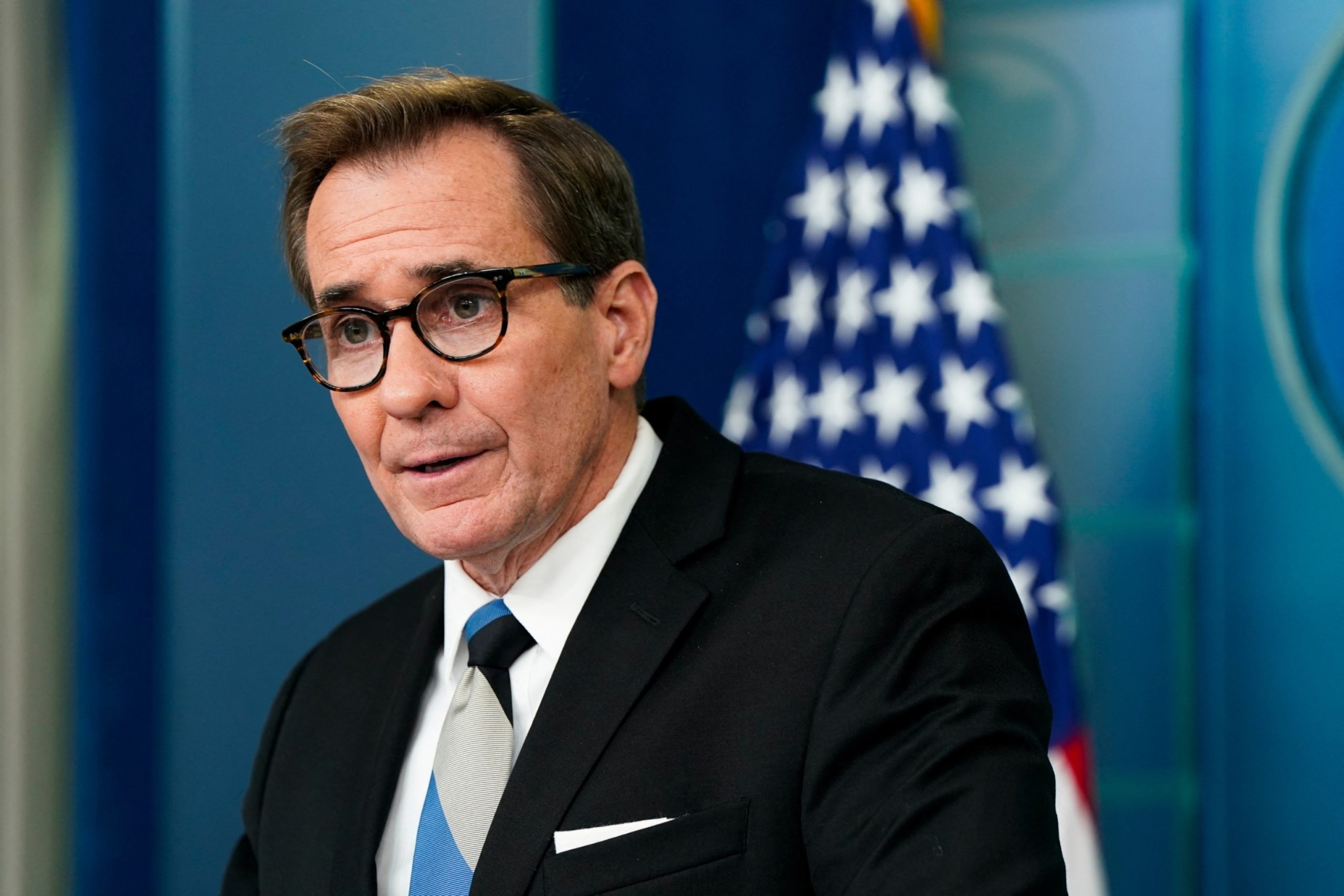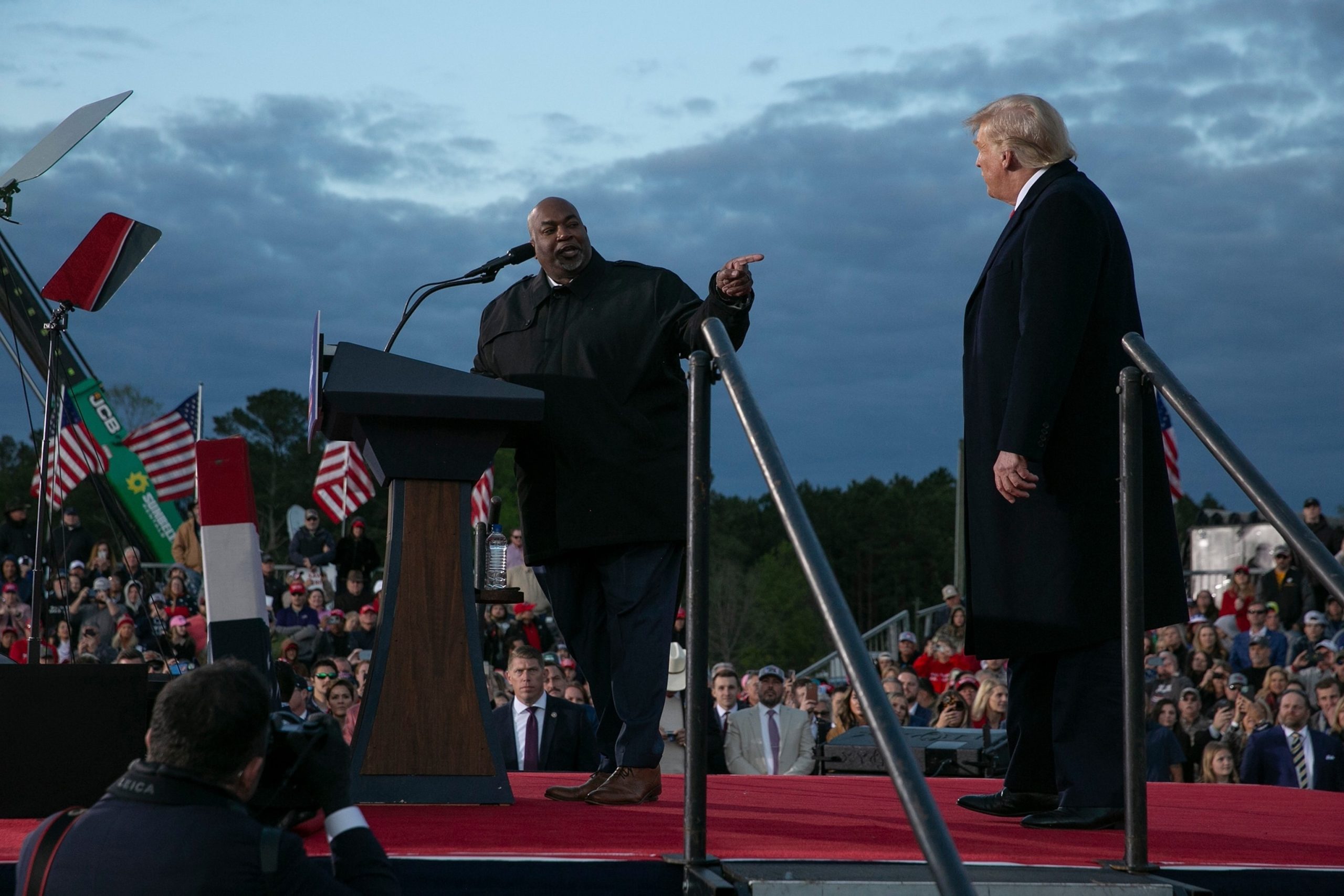The Biden administration on Tuesday expressed sympathy after dozens of civilians were killed in an Israeli airstrike in Rafah over the weekend, but signaled it would wait for a full Israeli investigation to play out before taking any action.
“You’ve all seen the images, they’re heartbreaking, they’re horrific. There should be no innocent life lost here as a result of this conflict,” National Security Communications Adviser John Kirby said during a White House press briefing.
“Israel, of course, has a right to go after Hamas. And we understand that this strike did kill two senior Hamas terrorists who are directly responsible for attacks against the Israeli people,” he continued.
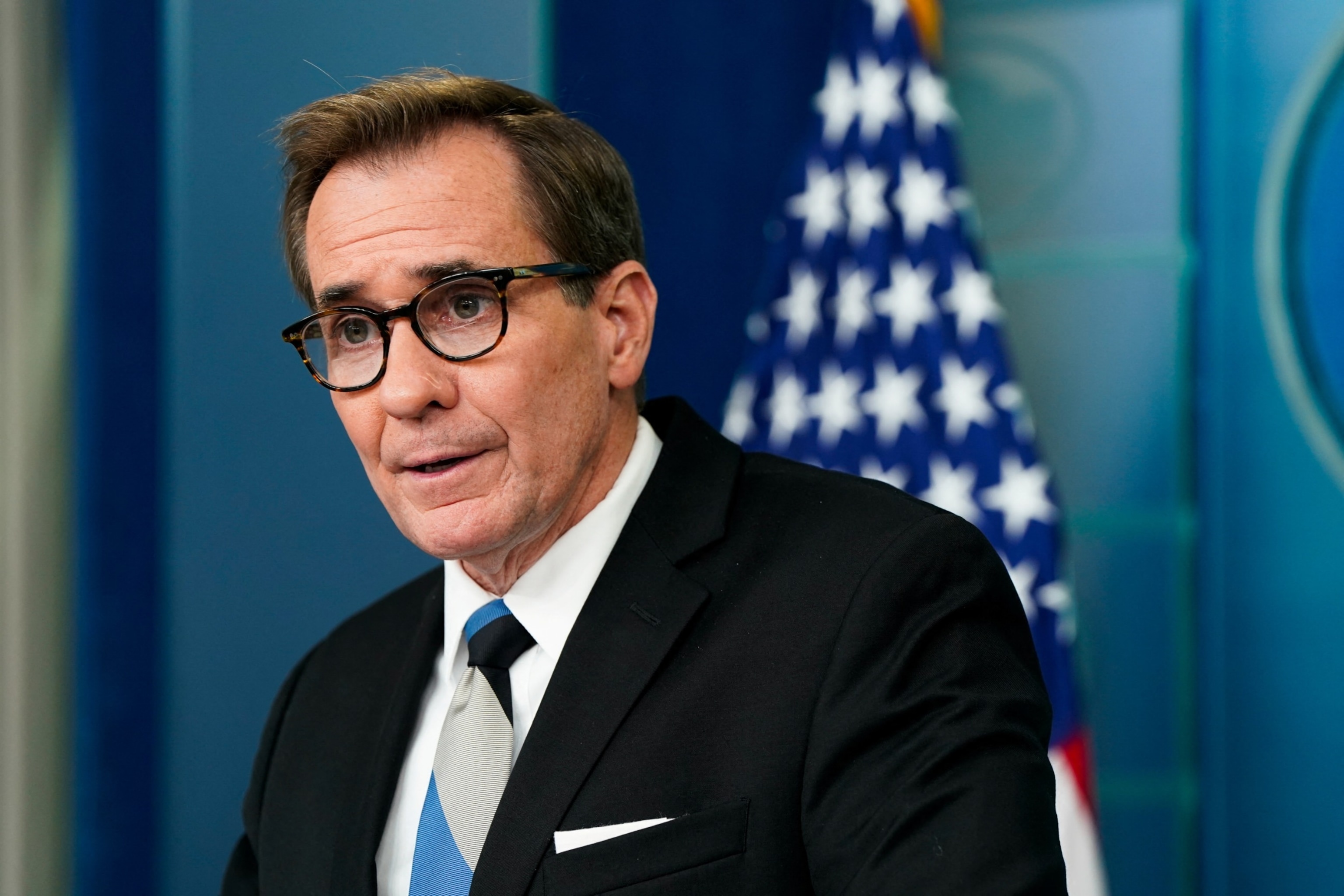
U.S. White House National Security Communications Advisor John Kirby speaks during a press briefing at the White House in Washington, May 28, 2024.
Elizabeth Frantz/Reuters
But eliminating those two Hamas targets cost at least 45 Palestinians their lives and inflicted gruesome injuries on scores of others when the strike ignited a large fire that tore through a nearby encampment, according to the Hamas-run Gaza Health Ministry.
The strike is the single deadliest attack since Israel launched its offensive in Rafah more than two weeks ago and graphic images from its aftermath have prompted international fury, further isolating Israel on the international stage and escalating pressure on the Biden administration to pull back military support.
In a statement issued Tuesday, United Nations Secretary-General António Guterres condemned the attack “in the strongest terms,” declaring “the horror and suffering must stop immediately.”
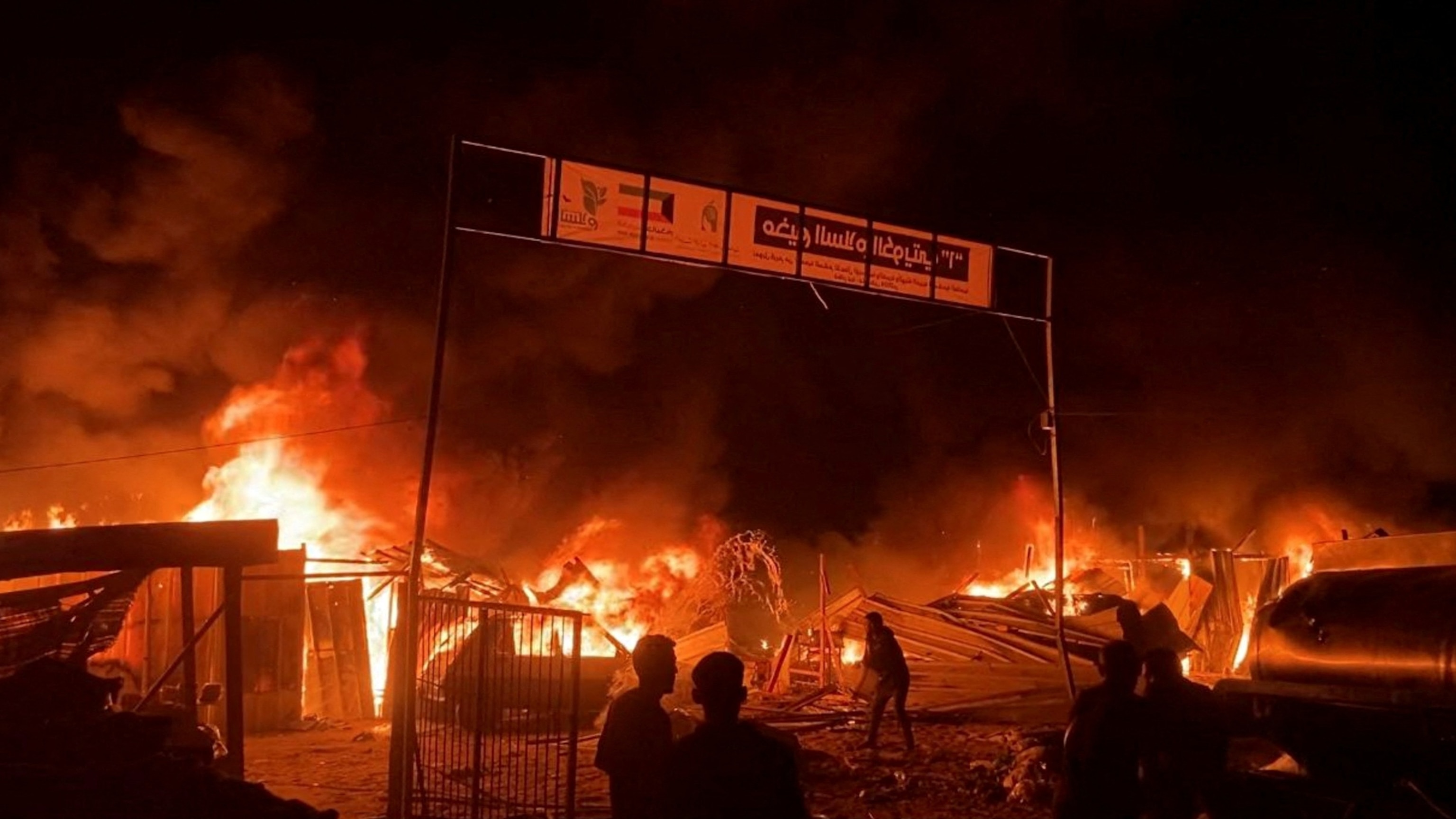
Fire rages following an Israeli strike on an area designated for displaced Palestinians, amid the ongoing conflict between Israel and Hamas, in Rafah in the southern Gaza Strip, May 26, 2024.
Reuters
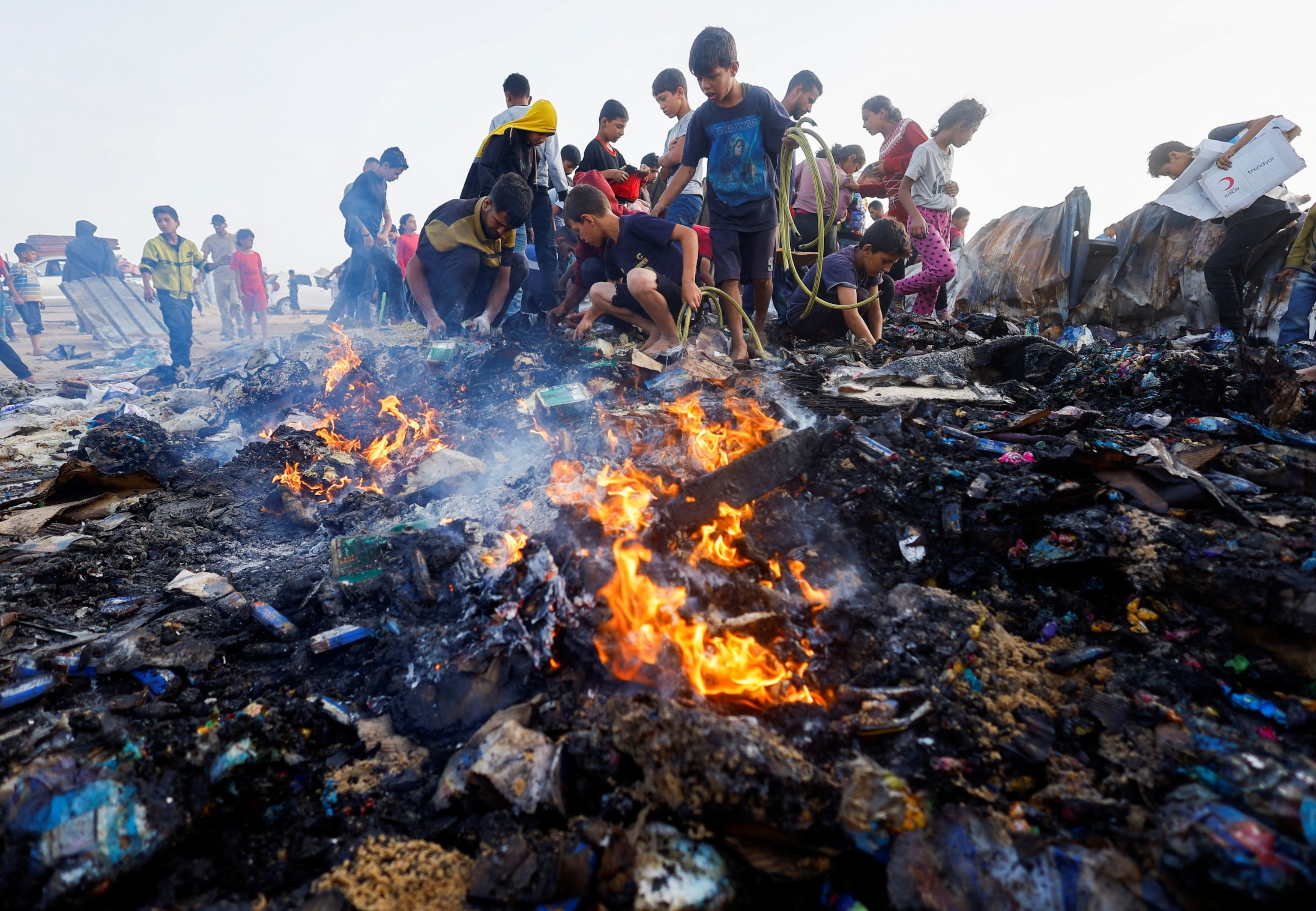
Palestinians search for food among burnt debris in the aftermath of an Israeli strike on an area designated for displaced people, in Rafah in the southern Gaza Strip, May 27, 2024.
Mohammed Salem/Reuters
Although officials across Washington mourned the loss of life in Rafah, they indicated they would wait for more answers about the circumstances surrounding the strike to come to light before responding any further.
“As a result of this strike on Sunday, I have no policy changes to speak to,” Kirby said. “It just happened. The Israelis are going to investigate it. We’re going to be taking great interest in what they find in that investigation, and we’ll see where it goes from there.”
When ABC Chief White House Correspondent Mary Bruce pressed Kirby on whether the White House believes the strike was “precise and proportional” as the administration said was necessary, he said he would not get ahead of the full IDF investigation.
And while Kirby did condemn the loss of life in Rafah, he was careful not to criticize Israel directly.
After an initial review of the strike, the Israel Defense Forces said the strike was targeted and munitions used in the attack could not have caused such a large blaze — that something else must have fueled it — pointing to what it said was a Hamas weapons depot in the vicinity as a possible cause.
The IDF also rejected claims that the strike directly hit an area designated by the Israeli government as a safe zone for Palestinian civilians, saying the target is located more than a kilometer-and-a-half — or a little under a mile — away.
Popular Reads
As Israel conducts a more comprehensive probe into the incident, State Department spokesperson Matthew Miller said the U.S. would press the country’s government to “present those facts publicly, so we along with the rest of the world can make the kind of assessments that we need to be able to do.”
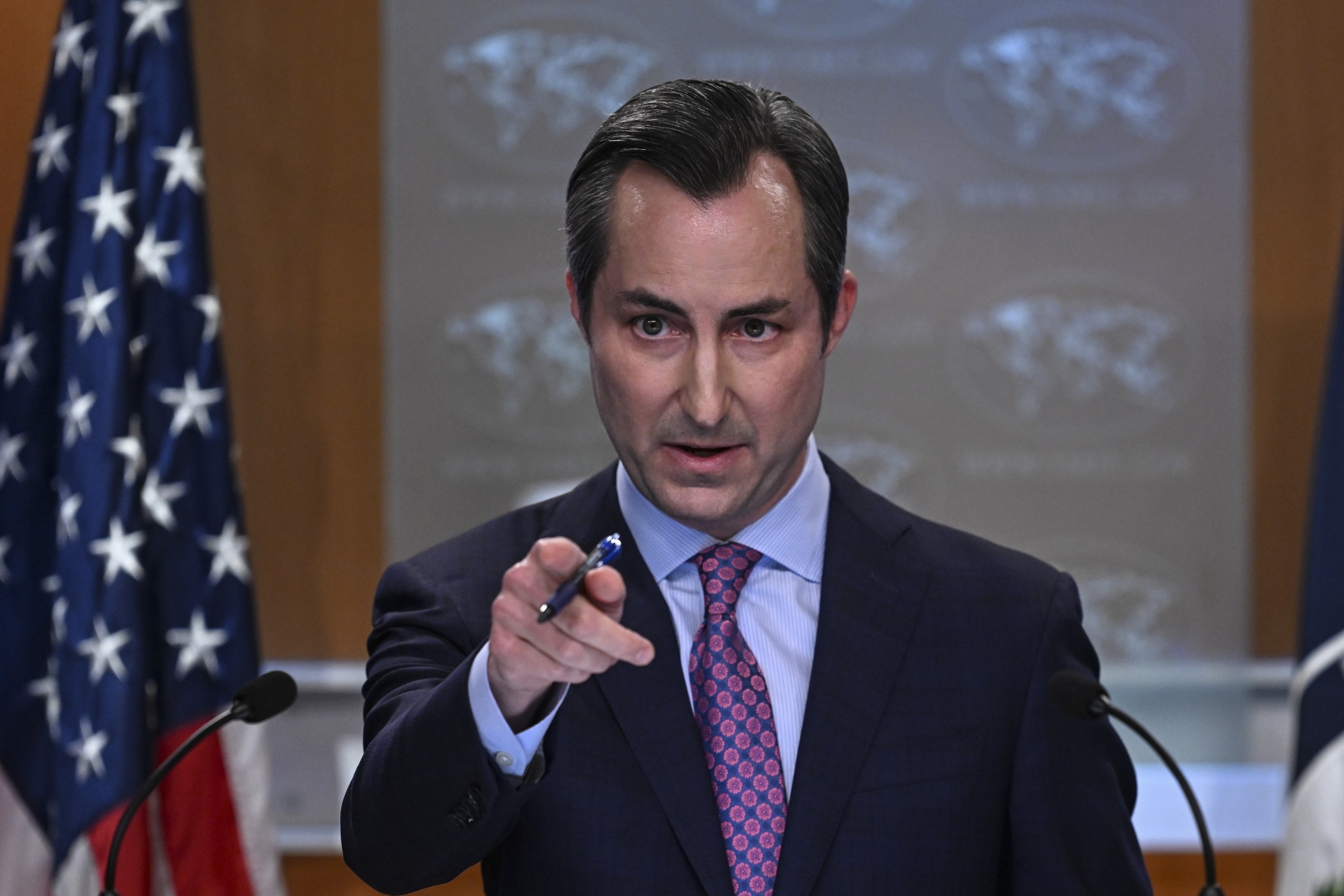
U.S. State Department Spokesperson Matt Miller speaks to reporters during the daily press briefing at the State Department in Washington, July 17, 2023.
Celal Gunes/Anadolu Agency via Getty Images, FILE
While a full investigation will likely take weeks to complete, President Joe Biden already is facing intensifying scrutiny for what critics say is his vague “red line” for Israel’s latest military offensive.
Earlier this month, Biden vowed he would halt shipments of some U.S. bombs to Israel if the country’s forces were to “go into Rafah.”
U.S. officials later said he was referring to a major invasion — “smashing” into the heavily populated city in southern Gaza — but they have yet to specify exactly what would trigger consequences for Israel, saying only that they don’t want to see military operations reach the same scale as those Israel used in Khan Younis and Gazan City earlier in the war.
So far, the Biden administration has defined Israeli military activity in Rafah as “limited,” but UNRWA Commissioner-General Philippe Lazzarini said on Tuesday that warfare in the area had already prompted a mass exodus — forcing one million people to flee in search of safety.
“An endless horror show, except it’s real,” Lazzarini said.
ABC News’ Justin Gomez contributed to this report.
President Joe Biden is facing mounting pressure from both domestic and international critics following an Israeli strike that resulted in civilian casualties in the Gaza Strip city of Rafah. The strike, which occurred on Sunday, targeted a building that housed media outlets including the Associated Press and Al Jazeera, as well as residential apartments. At least 10 people were killed in the attack, including children.
The Israeli military has defended the strike, claiming that the building was being used by Hamas militants for military purposes. However, the targeting of media outlets has raised concerns about press freedom and the safety of journalists in conflict zones. The Biden administration has called for a de-escalation of violence in the region and expressed concern about the impact of the conflict on civilians.
Critics of President Biden have accused him of not doing enough to hold Israel accountable for its actions in Gaza. Some have called for the administration to take a tougher stance on Israel and to push for a ceasefire in the region. Others have criticized Biden for not speaking out more forcefully against the violence and for not taking a more active role in brokering peace talks between Israel and the Palestinians.
The mounting pressure on President Biden comes at a time when the conflict between Israel and Hamas shows no signs of abating. The violence, which began over a week ago, has resulted in hundreds of deaths and widespread destruction in Gaza. The international community has called for an end to the hostilities and for both sides to return to the negotiating table.
As President Biden navigates this delicate situation, he faces a difficult balancing act between supporting Israel, a key ally in the region, and upholding human rights and international law. The mounting pressure on him to take a more assertive stance on the conflict underscores the challenges of U.S. foreign policy in the Middle East.
In the coming days and weeks, President Biden will need to carefully consider his next steps in addressing the crisis in Gaza. The world will be watching closely to see how he responds to the mounting pressure and whether he can help bring an end to the violence and suffering in the region.
